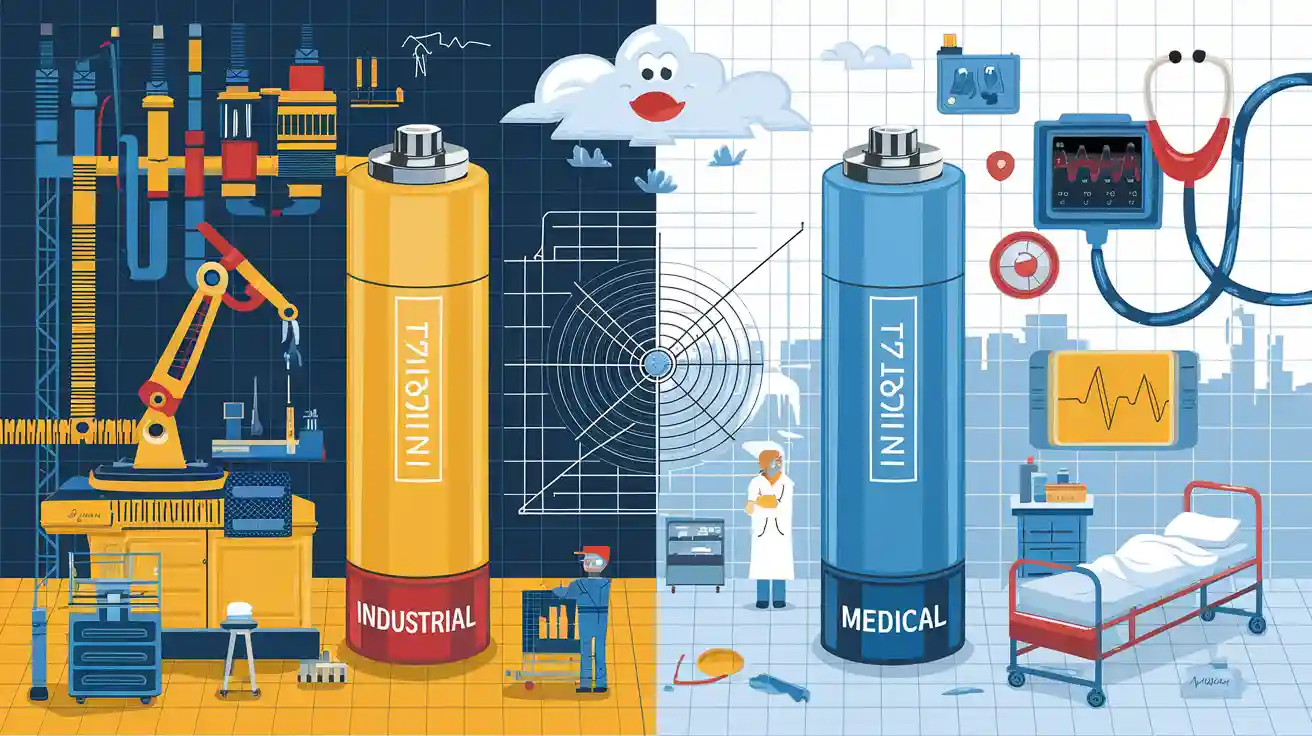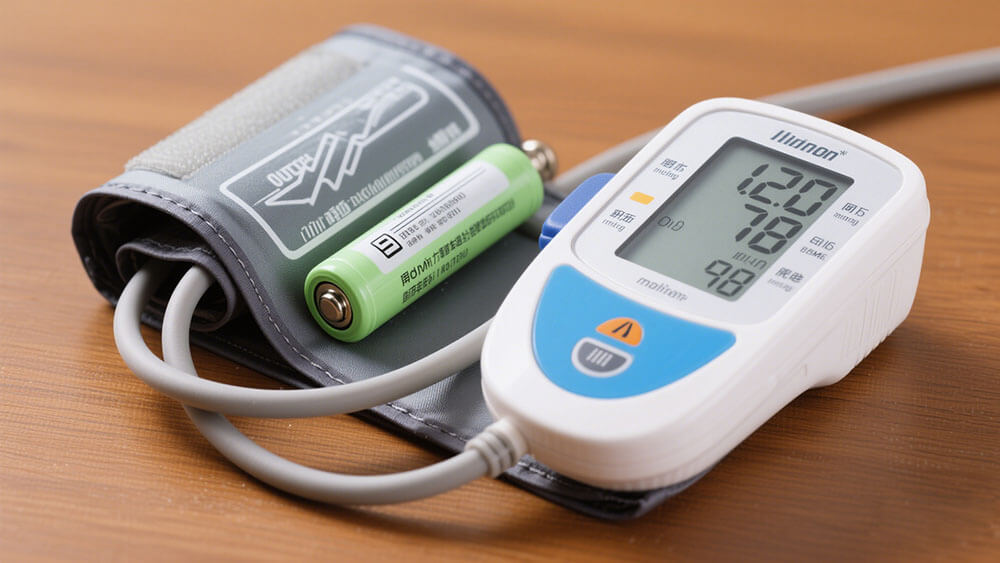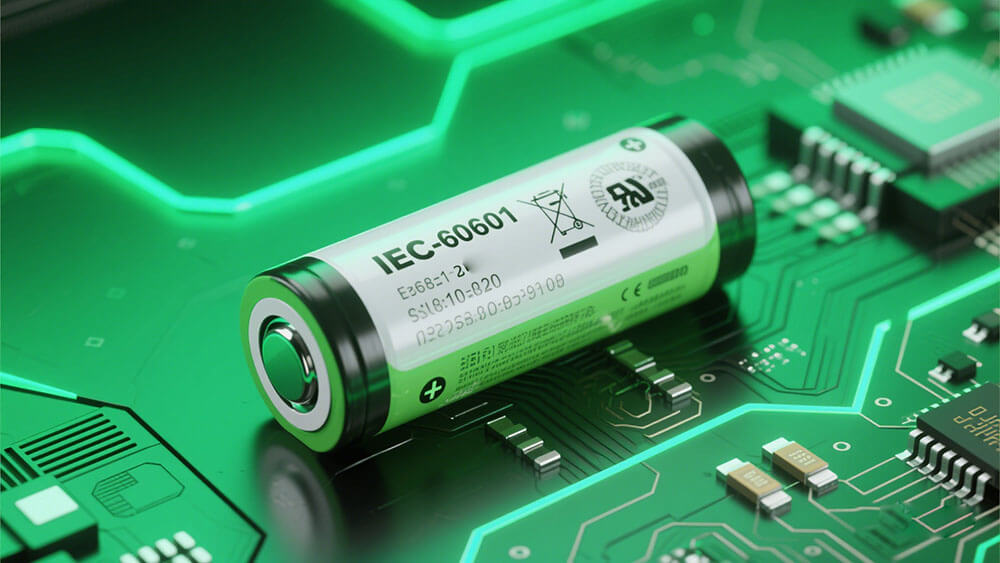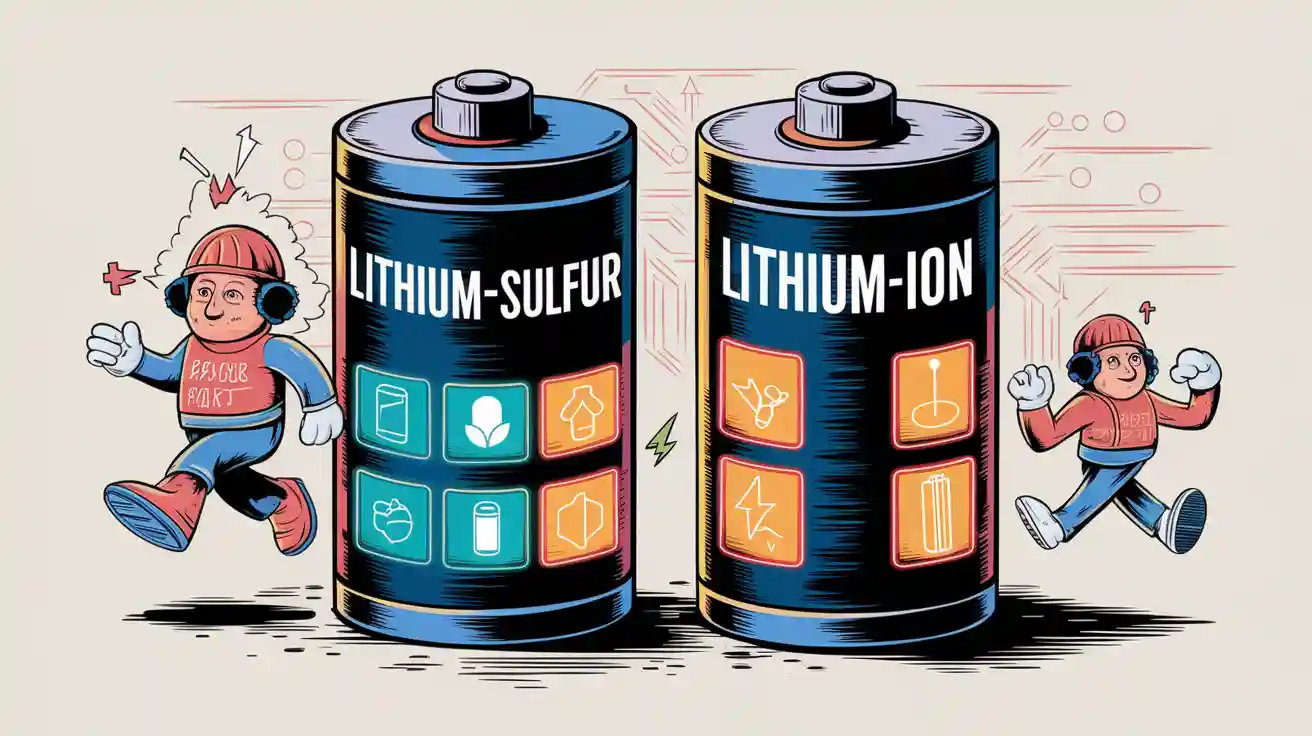Contents

Choosing the appropriate lithium battery for industrial or medical applications requires a thorough understanding of compliance with IEC 60601 standards. Lithium batteries designed for these purposes vary greatly in terms of application, safety features, and performance optimization. For B2B clients, leveraging custom battery solutions ensures tailored designs that prioritize safety, exceptional performance, and long-term cost-effectiveness. This strategy not only strengthens regulatory compliance with IEC 60601 but also minimizes risks and ensures operational reliability.
Key Takeaways
Learn how industrial and medical lithium batteries are different. Industrial batteries are strong and give lots of energy. Medical batteries focus on safety and follow IEC 60601 rules.
Think about what you need before picking a battery. Look at things like where it will be used, safety needs, and if it needs special features to work well.
Know the safety rules and guidelines. Medical batteries must follow IEC 60601 for safety. Industrial batteries need to meet basic safety rules to work reliably.

Part 1: Applications and Use Cases
1.1 Industrial Lithium Battery Applications
Industrial lithium batteries play a critical role in powering heavy-duty equipment and systems across various sectors. These batteries are commonly used in robotics, infrastructure, and security systems due to their high energy density and durability. For example, in robotics, lithium-ion batteries enable extended operational hours and precise energy management, ensuring uninterrupted performance in automated manufacturing processes. Learn more about robotics applications.
In infrastructure, these batteries support transportation systems, including electric buses and railways, by delivering consistent power output under demanding conditions. Explore infrastructure applications. Security systems also benefit from industrial lithium batteries, as their rugged construction ensures reliability in surveillance equipment and emergency backup systems. Discover security system applications.
A case study highlights the effectiveness of sensor-equipped batteries in industrial settings, where a U.S. hospital system reported a 22% reduction in emergency battery replacement claims. Additionally, remote monitoring platforms demonstrated 92% accuracy in predicting battery depletion months in advance, showcasing the integration of machine learning for enhanced reliability.
1.2 Medical Lithium Battery Applications
Medical lithium batteries are specifically designed for portable medical equipment, such as defibrillators, infusion pumps, and neurostimulators. These batteries prioritize safety and compliance with IEC 60601 standards to ensure patient safety and device reliability. Learn more about medical battery applications.
Key features include enhanced safety mechanisms that prevent overheating and overcharging, critical for life-saving devices. Over 90% of FDA-approved medical devices rely on medical-grade batteries to meet stringent safety and performance criteria. Compliance with ANSI/AAMI ES 60601-1 and UL2054 further reduces malfunction rates and safety incidents, ensuring optimal usability in healthcare environments.
Rechargeable lithium-ion batteries have revolutionized medical applications, as seen in neurostimulators, where replacement surgeries decreased by 60% over a decade. These advancements highlight the importance of tailored battery solutions for healthcare settings.
1.3 Key Differences in Application Requirements
Feature | Industrial Lithium Batteries | Medical Lithium Batteries |
|---|---|---|
Cycle Life | Up to 5000 recharge cycles, longer lifespan | Shorter cycle life, optimized for high reliability |
Energy Density | Higher energy densities for significant power output | Prioritizes safety and consistent performance |
Standards | Adhere to specific safety regulations, less rigorous testing | Must comply with strict FDA and IEC standards |
Durability | Built for harsh environments, rugged construction | Engineered for reliability and safety |
Initial Investment | Higher upfront cost, lower total ownership costs over time | Less expensive initially, but may require more frequent replacements |
Industrial lithium batteries excel in environments requiring durability and high energy output, such as robotics and infrastructure. Medical lithium batteries, on the other hand, focus on safety and reliability for portable medical equipment. Understanding these differences ensures you select the right battery type for your specific needs.

Part 2: Safety Standards and Regulations
2.1 Overview of IEC 60601 Standard Series
The IEC 60601 standard series serves as the global benchmark for electrical safety and performance in medical devices. It ensures that medical equipment meets stringent requirements for reliability, patient safety, and electromagnetic compatibility.
First published in 1977, the IEC 60601 standard series has undergone significant evolution to address advancements in technology and healthcare needs.
The third edition, released in 2005, introduced comprehensive updates to the second edition from 1988, emphasizing risk management and usability.
As of 2011, the series includes a general standard, approximately 10 collateral standards, and around 80 particular standards tailored to specific medical devices.
The U.S. FDA’s Center for Devices and Radiological Health (CDRH) confirmed a three-year transition period for adopting these standards, starting in Fall 2020.
The IEC 60601 standard series continues to evolve, with the development of a fourth edition expected to begin around 2025. This progression highlights the importance of staying updated with regulatory changes to ensure compliance and operational reliability.
2.2 Safety Requirements for Medical Lithium Batteries
Medical lithium batteries must adhere to rigorous safety standards to protect patients and healthcare providers. Compliance with IEC 60601 ensures that these batteries meet critical requirements for electrical safety, thermal management, and electromagnetic interference.
Key safety features include:
Overcharge and Overheat Protection: Advanced battery management systems (BMS) prevent overheating and overcharging, reducing the risk of device failure.
Electromagnetic Compatibility: Medical batteries must minimize electromagnetic interference to ensure seamless operation alongside other medical equipment.
Reliability in Emergency Scenarios: Batteries used in life-saving devices, such as defibrillators and infusion pumps, must deliver consistent performance under critical conditions.
Compliance with ANSI/AAMI ES 60601-1 and UL2054 further enhances the reliability of medical lithium batteries, ensuring they meet the highest standards for safety and performance.
2.3 Safety Considerations for Industrial Lithium Batteries
Industrial lithium batteries prioritize durability and performance in demanding environments. While they do not face the same stringent requirements as medical batteries, they must still comply with safety standards to ensure operational reliability.
Key considerations include:
Environmental Resistance: Industrial batteries are designed to withstand extreme temperatures, vibrations, and mechanical stress, making them ideal for applications in robotics and infrastructure.
Battery Management Systems: Integrated BMS optimize energy usage and monitor battery health, reducing downtime and maintenance costs.
Safety Standards: Industrial batteries comply with regulations such as IEC 62133 and UN38.3, which address transportation safety and environmental impact.
These features ensure that industrial lithium batteries deliver consistent performance while maintaining safety in challenging conditions.
2.4 Key Differences in Safety Compliance
Feature | Medical Lithium Batteries | Industrial Lithium Batteries |
|---|---|---|
Regulatory Standards | IEC 60601, ANSI/AAMI ES 60601-1, UL2054 | IEC 62133, UN38.3 |
Electromagnetic Compatibility | Mandatory for medical devices to prevent interference | Not required for most industrial applications |
Thermal Management | Advanced systems to prevent overheating | Designed for high-temperature tolerance |
Durability | Focused on reliability in controlled environments | Built for rugged and extreme conditions |
Safety Priorities | Patient safety and device reliability | Operational safety and environmental resistance |
Medical lithium batteries emphasize patient safety and compliance with IEC 60601 standards, while industrial batteries focus on durability and performance in harsh environments. Understanding these differences helps you select the right battery type for your application.

Part 3: Construction and Design
3.1 Durability and Environmental Resistance
Industrial lithium batteries are engineered for resilience in extreme conditions. These batteries withstand high temperatures, mechanical stress, and exposure to moisture, making them ideal for applications in robotics and infrastructure. For example, their rugged construction ensures reliable performance in automated manufacturing systems and transportation networks.
Medical lithium batteries, however, prioritize controlled environments. While they may not require the same level of environmental resistance, they excel in reliability and safety. Their design ensures consistent performance in life-critical devices like infusion pumps and defibrillators. Compliance with IEC 60601 standards guarantees that these batteries meet general requirements for safety and performance, even under emergency conditions.
Feature | Industrial Lithium Batteries | Medical Lithium Batteries |
|---|---|---|
Environmental Resistance | High resistance to extreme conditions | Optimized for controlled environments |
Durability | Rugged construction for harsh use cases | Focused on reliability and safety |
3.2 Precision Engineering in Medical Batteries
Medical batteries demand precision engineering to meet stringent standards. Advanced technologies, such as integrated battery management systems (BMS), ensure optimal energy usage and thermal management. These features reduce risks like overheating and overcharging, critical for patient safety.
Industrial batteries, while robust, do not require the same level of precision. Their design focuses on delivering high energy density and operational efficiency in demanding environments. This distinction highlights the tailored approach needed for each application.
3.3 Customization and Scalability
Customization plays a pivotal role in meeting diverse operational needs. Industrial batteries offer scalability, allowing you to adapt them for various applications, from robotics to infrastructure. Their modular designs enable seamless integration into complex systems.
Medical batteries, on the other hand, emphasize customization for specific devices. Tailored solutions ensure compliance with safety standards and enhance device performance. For instance, neurostimulators benefit from compact, lightweight batteries designed for long-term use. To explore custom solutions for your needs, consult Large Power’s experts.
Tip: Selecting the right battery type involves evaluating your operational environment, safety requirements, and scalability needs.
Selecting the right battery type requires understanding the distinct differences between industrial and medical lithium batteries under IEC 60601 standards. Medical lithium batteries prioritize patient safety and compliance, while industrial batteries focus on durability and performance in demanding environments.
Key Considerations:
Medical Lithium Batteries:
Designed for medical electrical equipment, ensuring compliance with IEC 60601 certification.
Advanced safety mechanisms minimize electrical hazards, critical for patient safety.
Tailored designs meet specific requirements for portable devices.
Industrial Lithium Batteries:
Engineered for rugged applications like robotics and infrastructure.
Modular designs offer scalability and cost efficiency.
Compliance with general safety standards ensures operational reliability.
Comparative Table:
Feature | Medical Lithium Batteries | Industrial Lithium Batteries |
|---|---|---|
Certification | IEC 60601, ANSI/AAMI ES 60601-1 | IEC 62133, UN38.3 |
Durability | Optimized for controlled environments | Built for extreme conditions |
Cost Considerations | Higher replacement frequency due to shorter cycle life | Lower total ownership costs over time |
Safety Requirements | Advanced thermal management and electromagnetic compatibility | Environmental resistance and operational safety |
Tip: Evaluate your operational needs and compliance requirements to make informed decisions. For tailored solutions, consult Large Power’s experts.
FAQ
1. What makes industrial lithium batteries suitable for harsh environments?
Industrial lithium batteries feature rugged designs, high-temperature tolerance, and advanced battery management systems. These qualities ensure reliable performance in demanding applications like robotics and infrastructure. Explore industrial applications.
2. How does IEC 60601 impact medical lithium battery design?
IEC 60601 mandates strict safety, thermal management, and electromagnetic compatibility standards. These requirements ensure medical lithium batteries meet critical safety benchmarks for life-saving devices. Learn more about medical battery applications.
3. Can Large Power provide custom lithium battery solutions?
Yes, Large Power specializes in tailored lithium battery solutions for industrial and medical applications. Consult our experts for designs that meet your specific needs.





